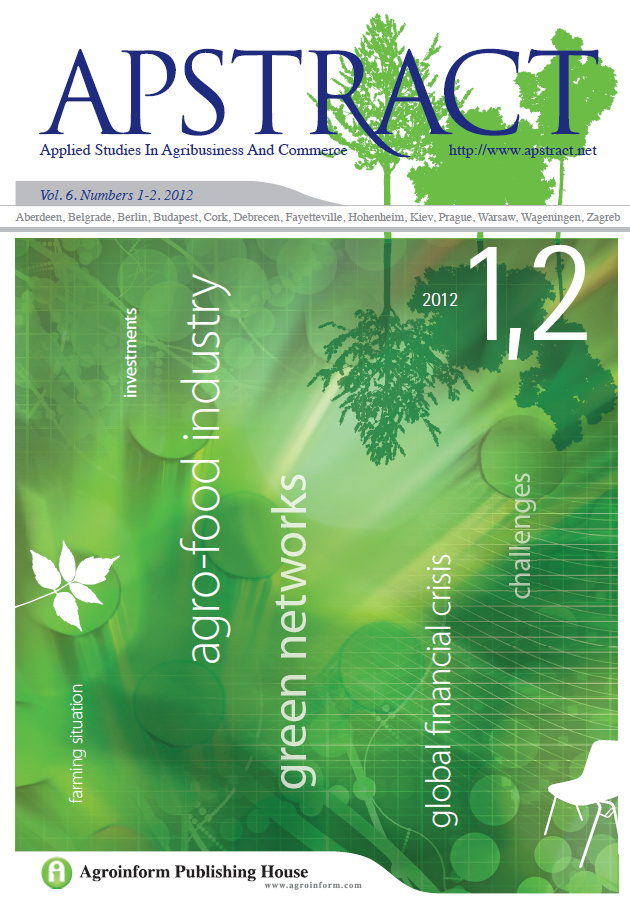Complex problem analysis of the Hungarian dairy farms
Authors
View
Keywords
How To Cite
Abstract
Hungarian dairy farms went through significant changes in past two decades. The most significant changes were caused by our accession to the European Union in 2004. In Hungary milk production remarkably declined after EU accession due to the decreasing level of support and decreasing milk prices. Size of our dairy herd has been practically reducing since the political transformation (1989); meanwhile the relative yields per cow have been continuously increasing. Relatively low prices, high production costs and tightening quality requirements ousted several producers – mainly small farms - from the market in past years. Feeding cost represents the highest rate in cost structure of production, but animal health expenditures and various losses are also significant. Applied technology of the Hungarian dairies lags behind theWestern-European competitors’; in addition they have handicaps in efficiency and product innovation. Moreover Hungarian milk and milk product consumption is about half of the Union average. In 2007 at the University of Debrecen the opportunities and the problems of this sector were discussed in the framework of a research and development project entitled “Project-generating based on sector-specific innovation”.At this workshop farmers, experts and advisers shared their ideas which were all gathered. The main objective of our paper is to provide useful information for the decision makers and the most important members of the sector. Using the practically successful ideas plus the ideas based on previous experience a new strategic concept was created. To reach the objective of this paper we collected, synthesized and analysed the strengths, weaknesses, opportunities and threats of the dairy farms and performed a SWOT analysis. On the basis of this SWOT analysis we set up a well organised problem hierarchy which would help to identify the main weaknesses of the sector. This analysis gives a great framework for the researches and it also gives a useful tool for the decision makers to improve the competitiveness of the Hungarian dairy sector.


 https://doi.org/10.19041/APSTRACT/2012/1-2/12
https://doi.org/10.19041/APSTRACT/2012/1-2/12




